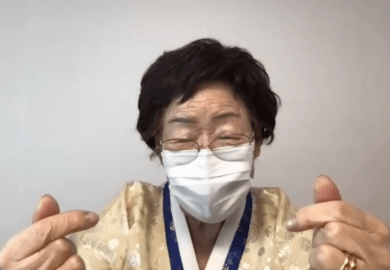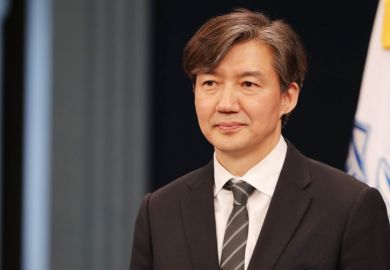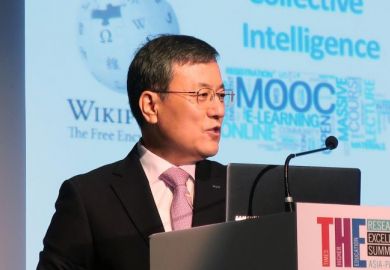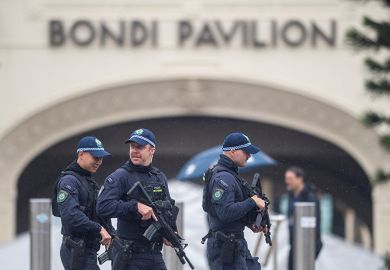The seven-year prosecution of a South Korean historian who researches “comfort women” has shone an uncomfortable spotlight on the country’s deep political divisions, academics said.
Sejong University professor emerita Park Yu-ha’s legal saga, prompted by her 2013 book Comfort Women of the Empire, finally came to an end after the high court in Seoul cleared her of criminal defamation charges. But scholars said that extreme polarisation in Korean society – and the thorny issues it throws up for academia – was far from over.
The topic of “comfort women”, and their free will in having sexual relations with Japanese soldiers during the occupation of Korea in the first half of the 20th century, is especially contentious. Professor Park’s case is just the most recent example in a string of similar cases in recent years.
In 2020, Lew Seok-Choon, a former professor at Yonsei University, was indicted for a lecture he delivered in which he said that comfort women engaged in a “form of prostitution”. In 2018, Song Dae-yup of Sunchon National University was sentenced to six months in prison for suggesting that some comfort women voluntarily joined “the system”.
While the outcome of the most recent case was more positive, scholars were sceptical that it would lead to greater academic freedom. Rather, it illustrated the polarisation in Korean society, in which more nuanced academic opinions are shouted down, they said.
“As it stands, an individual can be charged both civilly and criminally even for stating something that is true, if it is found to defame someone else. In my opinion, this goes too far,” said Shin Gi-wook, professor of sociology and contemporary Korea at Stanford University.
These laws can encroach on academic freedom, but they “are not the main problem”, he said; if Korean scholars self-censor, this was “because certain issues are highly politicised”.
Edward Vickers, an associate professor at Kyushu University who has been researching the politics of war-related heritage in east Asia, said that although it was “encouraging” that Professor Park had been acquitted, the prosecution had been an example of “cancel culture on steroids”.
“The problem in Korea is extreme polarisation that leaves no room for acknowledging nuance or complexity – and engaging with nuance and complexity should be the vocation of academic historians and social scientists,” Dr Vickers said.
He recalled a Japan-based conference for historians he attended, where two groups of Korean academics appeared to ignore each other.
“From Korea there were not one, but two delegations – each consisting of representatives of the two major teaching unions, which were aligned with Korea’s rival conservative and left-leaning political blocs,” he said. “The two Korean delegations sat apart: they were there to engage in dialogue with the Chinese and Japanese, but not with each other.”
Besides Korea’s historical relationship with Japan, there are a number of topics that strike a sensitive spot, including the 1948 Jeju uprising and 1980 Kwangju uprising and their military suppression, said Chungmoo Choi, professor of East Asian studies at the University of California, Irvine.
“By and large, [the] Korean War and national division and its ideological and affective impact still cast a long shadow,” he noted.
Korea has also fallen prey to the culture wars that have rocked Western campuses in recent years, said Yoosik Youm, professor of sociology at Yonsei University. Along with historical debates, current social issues threaten to pull more scholars into the fray.
“One of the most sensitive topics must be gender issues. Since some students have been recording lectures and reporting them to the media, self-censorship has been sharply increasing,” said Professor Youm.
Register to continue
Why register?
- Registration is free and only takes a moment
- Once registered, you can read 3 articles a month
- Sign up for our newsletter
Subscribe
Or subscribe for unlimited access to:
- Unlimited access to news, views, insights & reviews
- Digital editions
- Digital access to THE’s university and college rankings analysis
Already registered or a current subscriber?








